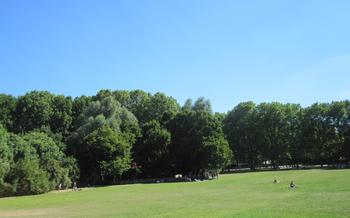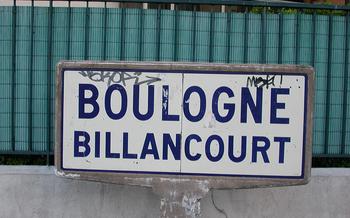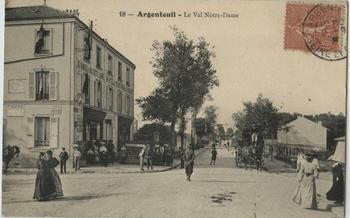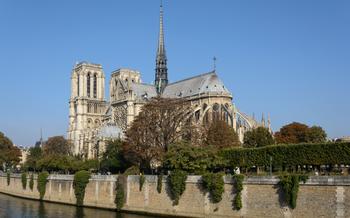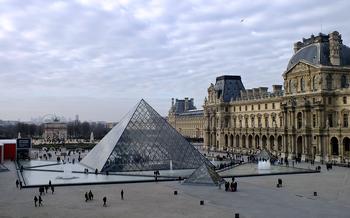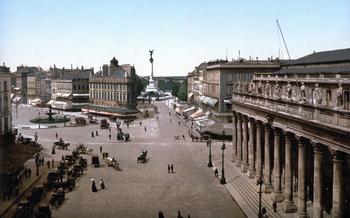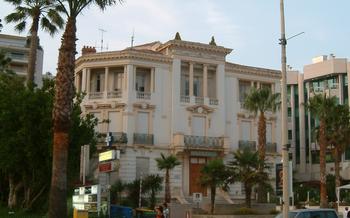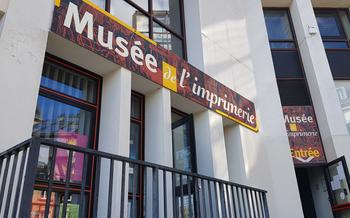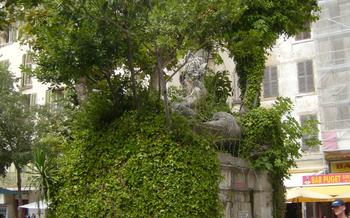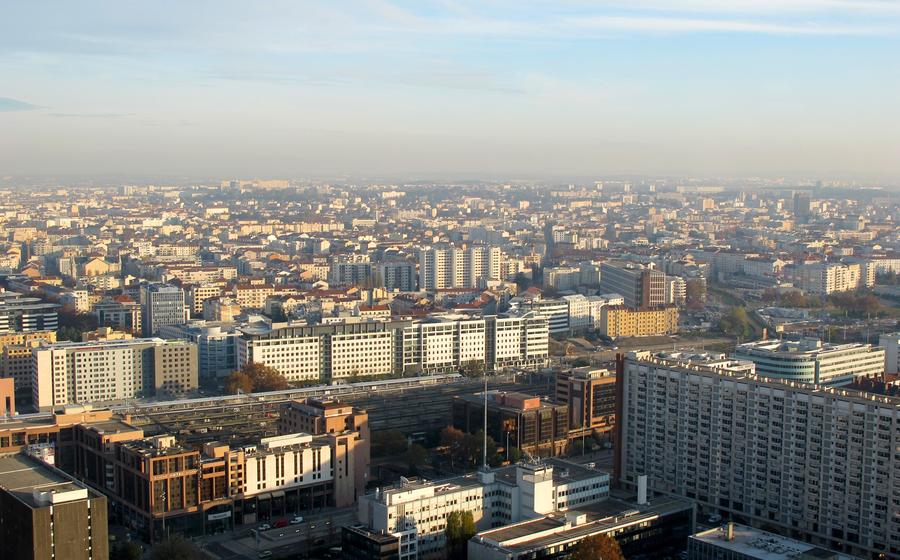
Institut national du cinéma et de l'image animée (Fémis)
- Institut National du Cinéma et de l'Image Animée (Fémis)
- Location:
- Campus
- Programs:
- Curriculum:
- Faculty:
- Student Projects
- Research Centers
- Festivals and Events
- Partnerships
- Visits and Workshops
- Insider Tip: Unveiling the Hidden Gems of Fémis
Institut National du Cinéma et de l'Image Animée (Fémis)
The Institut National du Cinéma et de l'Image Animée (Fémis) is a prestigious film school located in Paris, France. It was founded in 1946 under the name "École Nationale Supérieure Louis Lumière" and was later renamed "Fémis" in 198The school's mission is to train and educate the next generation of filmmakers and animation professionals.
Fémis is one of the most renowned film schools in the world, and its graduates have gone on to achieve great success in the French and international film industries. The school's alumni include such notable filmmakers as Jacques Audiard, Jean-Pierre Jeunet, and Luc Besson.
Fémis is a highly selective school, and only a small number of students are admitted each year. The school's admissions process is based on a combination of academic achievement and creative potential.
Fémis offers a variety of programs, including undergraduate and graduate degrees in filmmaking, animation, and screenwriting. The school also offers a number of short courses and workshops for aspiring filmmakers.
Location:
The Institut National du Cinéma et de l'Image Animée (Fémis) is strategically located at 11 rue Alexandre Dumas, in the vibrant 20th arrondissement of Paris. This eclectic neighborhood, known for its rich artistic and cultural scene, provides a fitting backdrop for the school's creative endeavors.
The campus is easily accessible by public transportation, with the nearest metro stations being Porte de Montreuil and Maraîchers. The neighborhood itself is a treasure trove of diverse sights and experiences, offering visitors a glimpse into the city's vibrant tapestry.
Surrounding the school, one can find charming cafes, independent cinemas, and art galleries, creating a stimulating environment for students and visitors alike. Notable attractions in the vicinity include the Père Lachaise Cemetery, the resting place of renowned personalities like Jim Morrison and Oscar Wilde, and the Parc de la Villette, a sprawling urban park with cultural venues and green spaces.
Campus
The Institut national du cinéma et de l'image animée (Fémis) campus exudes a vibrant and artistic atmosphere, reflecting its dedication to filmmaking and visual storytelling. The architecture of the buildings blends modern functionality with a touch of cinematic charm, creating a stimulating environment for students and visitors alike.
The main campus is located in the heart of Paris, near the iconic Parc de la Villette. It comprises several buildings, including state-of-the-art studios, editing suites, screening rooms, and classrooms equipped with the latest technology. The facilities are designed to foster creativity and collaboration, providing students with the resources they need to excel in their chosen fields.
The campus is a hive of activity throughout the year, with students engaged in various projects, workshops, and discussions. The atmosphere is one of passion, curiosity, and a shared love for cinema. Students from diverse backgrounds come together to learn from each other and from the experienced faculty, creating a dynamic and supportive community.
Beyond the formal learning spaces, the campus offers a range of amenities that contribute to a well-rounded student life. There is a library stocked with an extensive collection of film-related books, magazines, and DVDs. The student lounge provides a comfortable and inviting space for students to relax, socialize, and exchange ideas. The campus also boasts a cafeteria serving delicious and affordable meals, as well as a gym and sports facilities for students to stay active and healthy.
Programs:
The Institut National du Cinéma et de l'Image Animée (Fémis) offers a range of programs designed to train future professionals in the film and animation industries.
The school's flagship program is the three-year Directing Program, which provides students with a comprehensive education in all aspects of filmmaking, from scriptwriting and directing to cinematography, editing, and sound design.
Fémis also offers a two-year Screenwriting Program, which focuses on the art and craft of writing for the screen. Students in this program learn how to develop compelling stories, create believable characters, and write dialogue that is both natural and effective.
In addition to these core programs, Fémis offers a number of specialized programs, including a one-year Documentary Directing Program, a one-year Animation Directing Program, and a one-year Producing Program.
Admission to Fémis is highly competitive, with only a small number of students accepted each year. Applicants must have a strong academic background and a passion for filmmaking or animation. The selection process includes a written application, a portfolio of work, and an interview.
Tuition fees at Fémis are relatively low, thanks to government subsidies. However, international students may be required to pay higher fees. Financial aid is available to students who qualify.
The application deadline for Fémis programs is typically in February or March. The selection process takes place over several months, and successful candidates are notified in the summer.
Curriculum:
The curriculum at the Institut national du cinéma et de l'image animée (Fémis) is designed to provide students with a comprehensive understanding of the filmmaking process, from scriptwriting and directing to cinematography, editing, and sound design. The school offers a range of programs, including a three-year undergraduate program in film studies, a two-year graduate program in filmmaking, and a one-year program in screenwriting.
The undergraduate program covers a wide range of topics, including film history and theory, screenwriting, cinematography, editing, and sound design. Students also have the opportunity to specialize in a particular area of filmmaking, such as directing, producing, or cinematography.
The two-year graduate program in filmmaking is designed for students who have already completed a bachelor's degree in film or a related field. The program provides students with advanced training in filmmaking, with a focus on developing their own creative voice. Students work on a variety of projects, including short films, documentaries, and feature films.
The one-year program in screenwriting is designed for students who want to develop their skills in writing for the screen. The program covers a range of topics, including screenwriting techniques, story structure, and character development. Students also have the opportunity to work on their own screenplays.
The teaching methods at Fémis are based on a combination of theoretical and practical training. Students learn through lectures, seminars, workshops, and hands-on experience. The school has a strong emphasis on collaboration, and students work closely with each other and with industry professionals on a variety of projects.
Faculty:
The Institut National du Cinéma et de l'Image Animée (Fémis) boasts an impressive faculty of renowned professionals and scholars in the film industry. Their expertise spans a wide range of areas, including filmmaking, cinematography, editing, sound design, and animation.
Among the notable faculty members is Jean-Claude Carrière, a celebrated screenwriter and playwright who has collaborated with directors such as Luis Buñuel and Miloš Forman. Agnès Godard, a prominent film editor, has worked on films by François Truffaut, Jean-Luc Godard, and Alain Resnais. Hervé Chigioni, a renowned cinematographer, has lensed films for directors like Claire Denis, Jacques Audiard, and Xavier Dolan.
The faculty also includes Jean-Pierre Jeunet, a filmmaker known for his visually stunning and imaginative films like "Amélie" and "A Very Long Engagement." Costa-Gavras, a Greek-French director, has gained international recognition for his politically charged films, including "Z" and "Missing." Nicole Brenez, a film historian and theorist, has written extensively on the history of French cinema and feminist film theory.
With such an accomplished faculty, students at Fémis have the opportunity to learn from the best in the field and gain valuable insights into the art and craft of filmmaking.
Student Projects
At the Institut National du Cinéma et de l'Image Animée (Fémis), student projects play a vital role in the curriculum. Students are encouraged to push their creative boundaries and explore new forms of storytelling through their work. The projects range from short films to documentaries, animation, and experimental films.
The level of creativity and innovation displayed in these projects is remarkable. Students are given the freedom to experiment with different genres, styles, and techniques, resulting in a diverse range of works. They are also encouraged to collaborate with industry professionals, including directors, producers, and cinematographers, to gain valuable insights and experience.
Collaboration with industry professionals is a key aspect of the student project experience at Fémis. Students have the opportunity to work with experienced filmmakers who provide guidance and mentorship throughout the creative process. This collaboration not only enriches the projects but also prepares students for their future careers in the film industry.
In addition to being showcased at the school's internal screenings, student films from Fémis are often selected for prestigious film festivals around the world. This provides students with an opportunity to gain international recognition and exposure for their work, as well as to network with industry professionals and potential employers.
Research Centers
The Institut national du cinéma et de l'image animée (Fémis) is home to several research centers that contribute to the advancement of film studies and filmmaking practices. These centers bring together scholars, filmmakers, and industry professionals to conduct research on various aspects of cinema.
One of the most prominent research centers is the Centre de recherche sur les images et les sons (CRIS). It focuses on the history, theory, and aesthetics of film and audiovisual media. CRIS researchers explore topics such as the evolution of film language, the relationship between image and sound, and the impact of new technologies on filmmaking.
Another notable research center is the Institut de recherche en cinéma et audiovisuel (IRCA), which focuses on the economic, social, and cultural aspects of the film industry. IRCA researchers investigate issues such as film production and distribution, audience behavior, and the role of cinema in society.
The Fémis Research Lab is a multidisciplinary research center that brings together filmmakers, engineers, and computer scientists to explore the latest technological advancements in filmmaking. The lab conducts research on topics such as virtual reality, augmented reality, and artificial intelligence, and how these technologies can be used to create new and innovative forms of storytelling.
The research conducted at these centers has a significant impact on the film industry, as it helps to shape new trends, develop new techniques, and inform policy decisions. The findings from these research projects are disseminated through publications, conferences, and other events, and they contribute to the overall body of knowledge about cinema.
Festivals and Events
The Institut national du cinéma et de l'image animée (Fémis) organizes a number of festivals and events that provide a platform for student projects, showcase the work of emerging filmmakers, and foster networking opportunities within the film industry. These events attract a diverse audience of students, professionals, and film enthusiasts.
Among the notable festivals hosted by Fémis are the "Festival du Film de Fin d'Études" and the "Festival de l'Animation". The "Festival du Film de Fin d'Études" showcases the final projects of graduating students, offering a glimpse into the diverse talents and perspectives of the next generation of filmmakers. The "Festival de l'Animation" celebrates the art of animation, featuring short films, feature-length works, and experimental pieces from both students and established animators.
In addition to these festivals, Fémis organizes regular screenings, workshops, and masterclasses throughout the year. These events provide opportunities for students and aspiring filmmakers to learn from industry professionals, gain insights into the latest trends and techniques, and network with potential collaborators.
Attendance at these festivals and events is open to the public, offering a unique chance for film enthusiasts to discover new talent, engage with the creative process, and immerse themselves in the vibrant world of French cinema.
Partnerships
The Institut national du cinéma et de l'image animée (Fémis) fosters a network of partnerships with film schools, institutions, and industry professionals to enhance its educational offerings and provide students with a well-rounded experience. These collaborations open doors to international exchange programs, visiting professorships, internships, and co-productions.
Key Partnerships:
- International Exchange Programs:
-
Partnerships with film schools worldwide facilitate student exchanges, allowing Fémis students to study abroad and gain exposure to diverse filmmaking cultures and techniques.
-
Visiting Professors:
-
Renowned filmmakers, scholars, and industry experts are invited as visiting professors, enriching the curriculum with their knowledge and experiences.
-
Industry Partnerships:
-
Collaborations with production companies, studios, and festivals offer students internships, hands-on experience, and networking opportunities.
-
Co-Productions and Joint Initiatives:
- Fémis engages in co-productions and joint projects with partner institutions, providing students with real-world experience and exposure to international collaborations.
These partnerships contribute to the school's dynamic and innovative environment, ensuring that students are well-prepared for successful careers in the global film industry.
Visits and Workshops
The Institut national du cinéma et de l'image animée (Fémis) offers a range of guided tours and workshops for the public, providing an opportunity for aspiring filmmakers and enthusiasts to learn from experts in the field. These events are not widely publicized, so it's worth checking the school's website or contacting the admissions office for more information.
Guided tours of the campus and its facilities, including the screening rooms, editing suites, and animation studios, are available by appointment. Visitors can learn about the history of the school, its programs, and the achievements of its students and faculty.
Workshops and masterclasses led by industry professionals are regularly organized, covering various aspects of filmmaking, such as directing, cinematography, editing, and sound design. These workshops provide a unique opportunity to gain insights from experienced filmmakers and receive hands-on training.
Special programs are also available for groups and educational institutions, tailored to their specific interests and needs. These programs may include film screenings, Q&A sessions with filmmakers, and workshops on specific topics.
To make the most of your visit to the Institut national du cinéma et de l'image animée (Fémis), it's advisable to plan ahead and book your spot in advance for any tours or workshops that interest you. Keep an eye on the school's website or social media pages for announcements about upcoming events.
Insider Tip: Unveiling the Hidden Gems of Fémis
Beyond the renowned programs and facilities, the Institut national du cinéma et de l'image animée (Fémis) holds a treasure trove of hidden gems waiting to be discovered. One such gem is the annual "Ciné-Club Fémis," a film screening series that showcases a diverse range of independent and experimental films handpicked by the school's students and faculty. These screenings offer a unique opportunity to catch rare and thought-provoking works that might otherwise go unnoticed.
Another insider tip is to attend the "Ateliers du Cinéma," a series of workshops and masterclasses conducted by industry professionals and Fémis alumni. These workshops cover various aspects of filmmaking, from screenwriting and directing to cinematography and editing, providing aspiring filmmakers with invaluable insights and hands-on experience.
For those interested in delving deeper into the world of film research, the school's research centers regularly organize conferences, seminars, and symposiums that explore cutting-edge topics in film theory and practice. These events are open to the public and offer a chance to engage with leading scholars and researchers in the field.
